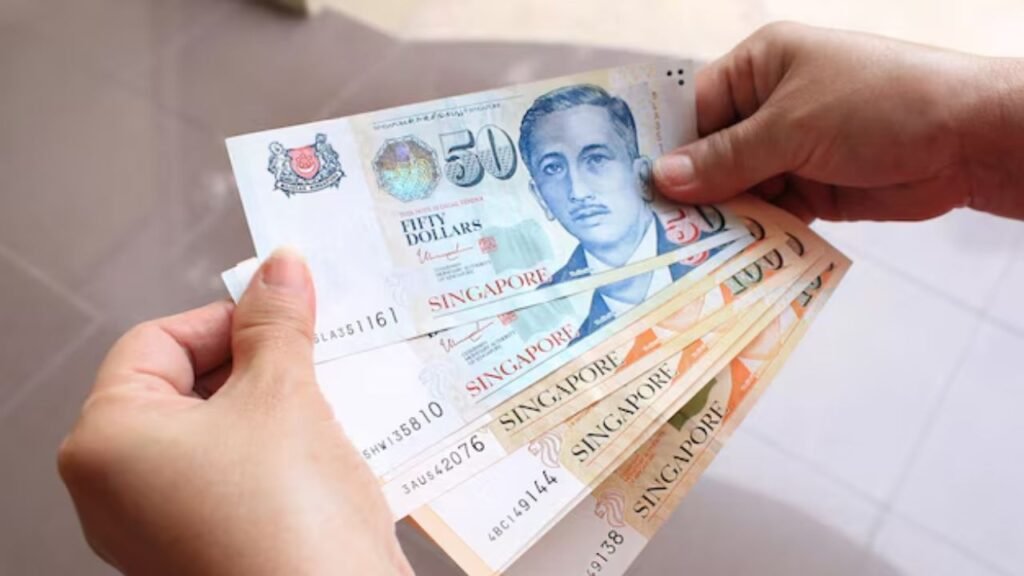As the cost of living continues to rise in Singapore, the government’s Goods and Services Tax Voucher (GSTV) program is once again at the forefront of national attention. Scheduled for a major payout in August 2025, the scheme plays a vital role in cushioning the financial impact on lower- and middle-income Singaporeans. In Budget 2025, enhancements were introduced to increase support, ensuring a stronger safety net for citizens in a high-inflation climate.
What Makes Up the GST Voucher Package This Year?
The GSTV scheme in 2025 includes a mix of direct cash assistance and subsidies to support different segments of the population. Four main components make up this year’s package: the GSTV-Cash for eligible working-age adults, MediSave top-ups for senior citizens, the U-Save rebate to ease utility bills, and the Service and Conservancy Charges (S&CC) rebate aimed at helping HDB households manage maintenance costs. An additional Cost-of-Living Special Payment has also been added to the mix this year to provide further financial relief.
Eligibility Rules Sharpened for Fair Distribution
To ensure that the support reaches those who need it most, the government has outlined clear eligibility guidelines. Only Singaporean citizens aged 21 and above as of December 31, 2024, may qualify for the Cash component. Their Annual Assessable Income for the Year of Assessment 2024 must not exceed $34,000. Furthermore, they must live in a property with an Annual Value not above $21,000 and must not own more than one residential property. Seniors eligible for MediSave top-ups must be aged 65 and above and meet the same income and housing requirements.
GSTV Payout Timeline and Benefits Explained

The main GSTV-Cash and MediSave distributions are set for August 2025, with estimated cash payouts ranging between $250 and $700, depending on the recipient’s income and housing circumstances. Seniors can expect between $250 and $450 credited to their CPF MediSave accounts. U-Save rebates, which assist in offsetting utilities, are distributed quarterly and vary between $95 and $380 annually based on HDB flat type. Similarly, the S&CC rebate will cover between 1.5 to 4 months’ worth of charges across the year.
Accessing Your GSTV
To receive the GSTV-Cash component, it is essential that your PayNow account is properly linked to your NRIC. This step ensures smooth and timely disbursement of funds directly to your bank account. Linking can be done via your bank or through the official GSTV portal. For MediSave and household subsidies like U-Save and S&CC rebates, no additional action is usually required, as these are automatically credited to the appropriate accounts.
Stay Alert for Notifications and Scam Warnings
Starting in July 2025, eligible recipients will begin receiving notifications about their upcoming GSTV payouts. These alerts will appear through SMS or in the Singpass inbox. It is crucial to remain vigilant, as fraudulent messages continue to pose a risk. The government emphasizes that it will never request sensitive information like login credentials or banking details via SMS or email.
Additional Aid You Might Be Entitled To
Besides the GST Voucher scheme, residents may also qualify for other government payouts in 2025. These include the Workfare Income Supplement (WIS) for low-wage workers, the Silver Support Scheme for elderly citizens with limited family support, and payouts under the Assurance Package introduced to cushion the GST hike. All eligibility checks and updates can be done through your Singpass account, where personal data and income history are securely stored and reviewed for these programs.
Financial Preparation Starts With Knowing Your Eligibility
In today’s fast-changing economy, knowing where you stand in terms of government support is more important than ever. The enhanced GSTV scheme is designed to not only provide short-term relief but to promote long-term stability for Singaporeans navigating financial pressure. By staying informed, updating your records, and making use of government tools, you can ensure your family receives the support they are entitled to in 2025.

